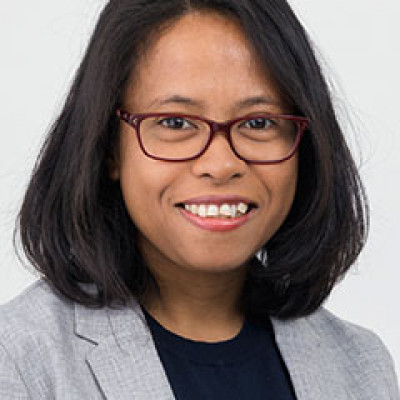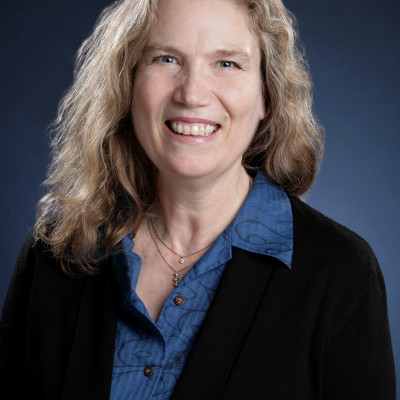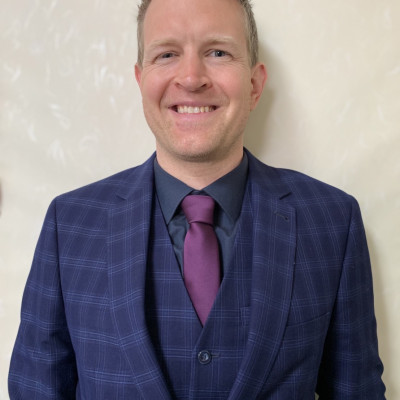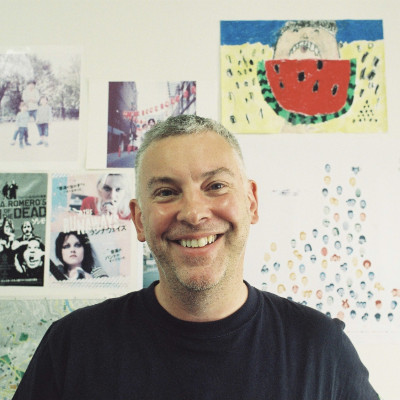Sessions / Location Name: 西 1 209
Physical Location
Location: 西 1 209
Language Teacher Wellbeing in Times of Change. #3984
Our physiological states and emotions can often be described as “contagious” for the learners we teach (Mercer & Dörnyei, 2020); therefore, if teachers bring negative emotional states to the classroom such as stress or anxiety, learners will likely not fully engage. Wellbeing is a state of being comfortable, healthy or happy, which is not static and fluctuates over time (Mercer & Gregersen, 2020); thus, consistently acknowledging one’s wellbeing is fundamentally important. When COVID-19 hit, English language teaching was disrupted with many teachers required to move towards an emergency remote teaching environment, which caused change and challenges. With the balance between professional and personal life challenging to manage (Pourbahram & Sadeghi, 2022), the pandemic and emergency remote teaching likely influenced teacher wellbeing. With virus restrictions relaxed, institutions have now transitioned back to the physical classroom. This presentation reports on English language teacher perspectives concerning their wellbeing during and after emergency remote teaching. Quantitative data were analysed with Kern's (2014) Workplace PERMA-Profiler in connection with Seligman's (2011) PERMA model consisting of 5 core areas of wellbeing - Positive emotion, Engagement, Relationships, Meaning, and Accomplishment. Negative Emotion and Health were also incorporated in the survey.
Teacher wellbeing workshop: It’s all about you! #3938
As teachers, we tend to focus so much on our learners that we often forget to think about our own wellbeing. Yet, teachers’ wellbeing is as important as learners’ and should be considered as an end in itself (Gregersen & Mercer, 2020). Williams et al. (2021) illustrate the importance of teacher wellbeing well by means of a metaphor: “As they say in airplanes, please put on your own oxygen mask first, before you try to help those who need your help (your learners). Your psychological wellbeing is precious and worth nurturing for your own sake as well as that of your learners” (p. 12). In this workshop, I will introduce some activities related to positive psychology that foster teachers’ wellbeing and enable teachers to focus on themselves. Participants in the workshop will have the opportunity to engage in and to reflect on those activities.
References Mercer, S., & Gregersen, T. (2020). Teacher wellbeing. Oxford University Press. Williams, M., Puchta, H., & Mercer, S. (2021). Psychology in practice. Helbling languages.
Autonomy, Creativity, and Innovation for Learners and Teachers Alike #3934
Depending on the learner and faculty support at the secondary and tertiary levels, students and teachers can be isolated in their environments because faculty development is not readily available. Nevertheless, the isolation can provide time to explore creativity and collaborative autonomy that is refreshing for students and teachers alike. Therefore, in this workshop, we will explore ways of developing and sustaining collaborative autonomy where creativity and innovation can flourish for effective change in various academic settings essential for vibrant learning organizations. Feeling under pressure from organizational constraints leads to stress, undermining the creative force vital for innovative learning environments. To combat academic stressors, workshop participants will actively engage in and reflect on thought-provoking work, receive creative encouragement, and use innovative resources that stimulate their creativity.
Self-reflection and Participation logs #3981
In this workshop I will focus on Schön’s (1983) concept of "Reflection on action". This means looking back at what you have done to understand and improve upon it. Over the last 6 years, I have had all my students complete a self-reflection and participation log during each semester. The purpose of the log is to encourage students to consider what they did in class, why they did it, what went well, what did not go well, what was difficult, and most importantly, what they should do to make positive change and improve themselves for the next time. During the course of a semester, I read the student logs and make comments or pose questions about the content. The logs have helped me understand my classes in a deeper way and sometimes make changes to my teaching practice. Additionally, judging from a number of student log entries, I can assert that the logs have been beneficial for students also. Participants in this workshop will work in groups to reflect about their classroom practice, analyse my logs for critique and improvement and finally discuss and share ideas for how to better utilise the tool of reflection in any learning context.
Exploring Emerging Ecologies of Older Adult Language Learning #3992
This research explores the factors involved in the emergence of an independently organised informal language learner group in a community centre in Japan. The methodology applies PPCT (Process-Person-Context-Time) from Bronfenbrenner’s bioecological approach to provide a detailed perspective of the people and the settings over time to show how these factors interact to construct an emergent learner group. Multiple data sources were used, eliciting information about life experiences, beliefs, and opinions about language learning. The analysis looks at how and why this specific learner ecology emerges and how it can inform lifelong learning and healthy ageing policy. The findings show that by engaging in second language learning, the participants find meaningful involvement in the group by welcoming self-expression, diversity, and support through factors of resilience, self-management, and agency. The result is the emergence of a multilingual, multicultural, and multigenerational place of inclusion within the community. Willingness to Act is shown to be dependent on Power to Act, mediated by factors of Support, highlighting the dynamic interplay of factors outside the learner group. The research also shows the social importance of creating opportunities for autonomous informal language learning settings in the community while highlighting the impact of agency for older adults.
Facilitating Practitioner Research in a Japanese University Context #3982
Faculty Development (FD) in universities is mandated by the Japanese Ministry of Education yet what constitutes FD is not clearly defined. This means that the ways in which ‘development’ is interpreted by and implemented by institutions, and the underlying purposes of such FD programmes, may not always meet the requirements of classroom practitioners. Language teachers themselves also need to navigate their own professional development pathways, balancing the demands of hiring institutions and their own personal interests as practitioner-researchers. This can be particularly challenging for time and resource poor teachers working the part-time circuit.
Speaking from his position as programme coordinator for a university-wide language centre, the presenter will outline what can be done to create an environment conducive to practitioner-led, inclusive research. Issues under discussion include mutual mentoring, broader definitions of what constitutes research and research writing, and support for classroom practitioners in sourcing funding, meeting ethical requirements, and finding opportunities to collaborate with peers.
Learner development through peer tutoring #3988
Learner development can occur beyond the classroom in both academic and non-academic realms. This study looked at development achieved by students in their role as peer tutors. The 34 tutors provided feedback on 2006 peer tutorial sessions and reported learning about their tutees, about tutoring and about the subject being tutored. Tutors reported learning about tutoring (558 comments), about qualities or characteristics of tutees (391 comments), about the subject matter being tutored (214 comments), about learning strategies (64 comments) and increasing their understanding of the curriculum (10 comments). The comments demonstrate increasing competence in tutoring skills, understanding of different learning styles, strategies and study methods, understanding the curriculum at the university and more nuanced understanding of subject-specific knowledge. The results of this research provide detailed insight into the kinds of development achieved by tutors through peer tutoring. The presenter will outline the research methods and results, as well as discussion and implications of the results for learner development of peer tutors.
Translanguaging and Exploratory Practice for Motivation and Participation #3961
This presentation will present findings and observations from a 3-month teacher-led exploratory practice study that utilized translanguaging as a means to increase student motivation and participation in a secondary school in Kanagawa. Employing several of the principles of exploratory practice – namely, involve everybody and work for mutual development (Allwright, 2003) – the instructor worked closely with the students to create active engagement in several portions of the class: student-led greetings, flipped classroom videos and projects, and the use of translanguaging in facilitating the comprehension of paused informative listening events. The presenter will focus on how the puzzle was diagnosed, what steps were taken to actively improve the class, and how these procedures were received by the 23 all-girl students. As the use of exploratory practice can promote constant and active assessment of one’s classes for both learners and instructors, attendees can implement these findings in their own classrooms encouraging students to be active and involved.
Foreign Language Anxiety in the English Classroom: Towards a Deeper Understanding #3971
Language classrooms can be an anxious experience for any student, but a number of students suffer from anxiety so strong that it affects their performance in the classroom. This group of students may present behaviours that at first glance appear to be disruptive (Gregersen 2005) but these types of behaviours may in fact be a coping mechanism to deal with their negative emotions (Beck 2011). The Horwitz Foreign Language Classroom Anxiety Scale may be used to identify the existence of anxiety in language classrooms (Horwitz, Horwitz & Cope 1986). I administered a Japanese translation of the questionnaire to 95 university students of which 85 provided valid answers. The answers identified that there may be a small but significant group of students for whom anxiety proposes a barrier to success in the language classroom. In this presentation, I show how my research may have identified that students have developed maladaptive ways of appraising their classroom situation and, in particular, the proficiencies of themselves and those around them. I then offer some possible solutions to identifying anxiety in the language classroom and ways in which teachers can adapt their lessons to be more inclusive of the most anxious students.






